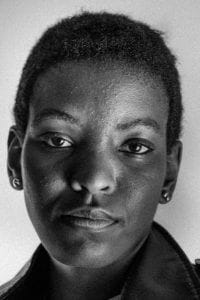
What Is Fungal Acne?
Acne is often caused by excessive bacteria growth on your skin. But, there is another form of acne, fungal acne, that is caused by a form of yeast or fungus growing on your skin. Yeast is normally present on your skin, but sometimes it overgrows and causes an infection of the skin. This happens either because a hair follicle is blocked (from things like make-up, sunscreen, lotion, oily skin), the conditions in your body are favorable for yeast growth (higher blood sugar), or something (like antibiotic use) has disrupted the normal bacteria that belong on your skin. The conditions that promote Malassezia overgrowth and infection include increased temperature, increased blood sugar, greasy skin, sweating, and suppression of your immune system.
The name of the yeast that causes it is Malassezia or Pityrosporum, so it is also known as Malassezia or Pityrosporum folliculitis (inflammation of the hair follicle). Malassezia also causes seborrheic dermatitis, a yellowish, greasy, scaly condition of the scalp.
What are the Symptoms of Fungal Acne?
Fungal acne is often mistaken for acne vulgaris, which is the acne that is caused by excessive bacteria growth on your skin. It differs from acne vulgaris in that it usually looks like small, uniform pimples that are usually itchy. These pimples may be located around the periphery of your face, especially on your forehead, temples, and chin, on your back, on the backs of your arms, and on your chest, and neck.
What Does Fungal Acne Look Like?
Fungal acne is usually small, superficial pimples that are similar in size. They are often found around the outside of your face, on your forehead, back, chest, and neck. About 70% of the time, the pimples are itchy.

What Causes Fungal Acne?
This type of acne is common in teenagers because their oil-producing glands are more active. It is more common in people who perspire heavily, live in hot climates, and in males. Another factor that seems to contribute to it is the use of oral or topical antibiotics, especially tetracycline. Antibiotics disrupt the normal skin flora, just as they disrupt your gut flora. This provides the opportunity for Malassezia to overgrow.
Fungal Acne Vs. Acne Vulgaris
It’s important to differentiate between these two types of acne because the use of antibiotics that are typically used in acne vulgaris can make this situation worse. If acne doesn’t respond to antibiotics and it’s itchy, it may be Malassezia folliculitis. Another way to know if your acne is fungal is to see if it responds to treatment with anti-fungals.
How Do You Treat Fungal Acne?
My treatment for fungal acne is similar to how I would treat acne vulgaris, because the root cause is the same. To treat acne caused by yeast, we need to reduce the oil production on the skin, unblock the pores, stabilize blood sugar, and maintain a healthy immune system. How do we do this?
- Diet: What you eat can increase oil production on your skin. Foods that spike your blood sugar, will increase your body’s need for insulin, insulin increases the production of testosterone, testosterone increases oil production on your skin. Androgens also increase inflammation in acne. This is why stabilizing your blood sugar is important.
- Reducing the oil production on your skin, helps to unblock the pores. Exercise that causes you to sweat also helps flush out your pores.
- Maintaining a healthy immune system is through a healthy lifestyle. Get good sleep, reduce your stress, eat a healthy, whole foods diet, exercise, and enjoy some social interaction.
In addition to these measures, I can help through vitamins, minerals, and herbs that help to stabilize blood sugar, reduce insulin, balance hormones, and support healthy skin. I can also use natural antifungals to kill off Malassezia. Call me at 416-481-0222 if you have questions or book an appointment online now.
Authored by Dr. Pamela Frank, BSc(Hons), ND
References
https://pubmed.ncbi.nlm.nih.gov/28274349/
https://www.ncbi.nlm.nih.gov/pmc/articles/PMC3970831/
Dr. Pamela has practiced as a naturopathic doctor in Toronto since 1999. She has received numerous “Best Naturopath in Toronto” awards. She is registered with the College of Naturopaths of Ontario.
Dr. Pamela Frank uses a natural treatment approach that may include acupuncture, herbal medicine, nutrition, diet, vitamins, supplements, and other natural remedies to restore balance and provide long-term resolution to almost any health problem.
